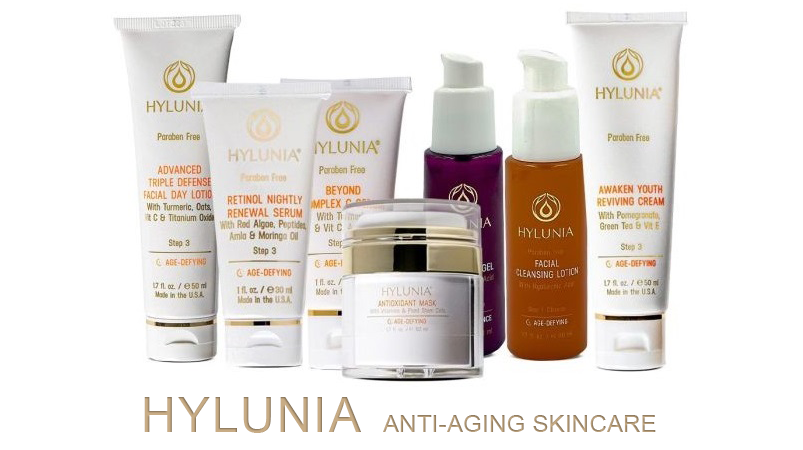
Vitamin C isn’t just for fighting off colds—it’s one of the most powerful ingredients in skincare, known for giving skin a brighter, firmer, and more youthful appearance. This mighty antioxidant can protect, repair, and boost your skin’s natural glow. Adding it to your skincare routine is like giving your skin an extra layer of defense and support.
Contents
Why Vitamin C is Essential for Anti-Aging
Vitamin C is a powerful antioxidant that helps protect your skin from environmental damage, boosts collagen production, and fades dark spots. It works by neutralizing free radicals—unstable molecules that can damage skin cells, leading to premature aging. Think of it as a protective shield that keeps your skin safe from pollution, UV rays, and other factors that contribute to wrinkles and dullness.
Collagen Boost for Firmer Skin
One of Vitamin C’s standout benefits is its ability to promote collagen synthesis. Collagen is the protein that gives skin its structure and elasticity. As we age, collagen production decreases, leading to sagging and wrinkles. Vitamin C helps stimulate new collagen, making skin appear firmer and more lifted over time.
Brightening and Evening Out Skin Tone
Vitamin C is also known for its ability to brighten skin and even out complexion. It inhibits melanin production, which means it can help reduce the appearance of dark spots, sunspots, and hyperpigmentation, leaving you with a more radiant, even-toned glow.
Choosing the Right Vitamin C Product
Not all Vitamin C products are created equal. The type of Vitamin C, its concentration, and how it’s packaged all affect its effectiveness. Look for a product that’s stable and formulated for your skin type to get the best results.
Types of Vitamin C
- Ascorbic Acid: This is the most potent form of Vitamin C and is effective for all skin types, though it may cause irritation in very sensitive skin. It’s usually found in serums.
- Sodium Ascorbyl Phosphate: A gentler form that’s great for sensitive skin and offers similar benefits with less potential for irritation.
Ideal Concentration for Best Results
Vitamin C serums typically range from 10% to 20% concentration. For most people, 10% is effective and gentle enough for daily use, while 15-20% provides more noticeable results for mature or sun-damaged skin. Start with a lower concentration if you’re new to Vitamin C, then work your way up.
How to Use Vitamin C in Your Skincare Routine
Applying Vitamin C correctly ensures you get the maximum benefit without risking irritation. Incorporating it into your morning routine is generally recommended, as it helps protect against daily environmental damage.
Step 1: Cleanse First
Start with a clean canvas. Use a gentle cleanser to remove dirt, oil, and impurities, giving your Vitamin C serum the best chance to penetrate deeply into your skin.
Step 2: Apply Vitamin C Serum
After cleansing and while your skin is still slightly damp, apply a few drops of your Vitamin C serum. Gently press it into your skin, focusing on areas prone to dark spots, like your cheeks, forehead, and around the mouth.
Step 3: Follow with Moisturizer and Sunscreen
- Moisturizer: Lock in hydration with a lightweight moisturizer, especially if Vitamin C tends to make your skin feel a little dry.
- Sunscreen: Vitamin C boosts UV protection, but it doesn’t replace sunscreen. Apply SPF 30 or higher as the final step in your morning routine.
Using Vitamin C in the morning can amplify its protective benefits and help prevent sun damage, which is a major cause of aging skin.
Common Vitamin C Myths Busted
Vitamin C is popular, but there’s also a lot of misinformation out there. Let’s clear up a few myths to ensure you’re getting the best from this powerhouse ingredient.
Myth #1: Vitamin C is Only for Mature Skin
While Vitamin C is fantastic for mature skin, it’s beneficial for all ages. Even younger people can benefit from its protective and brightening properties, especially if they’re looking to prevent early signs of aging.
Myth #2: You Can Skip Sunscreen if You Use Vitamin C
Vitamin C can enhance UV protection but is not a substitute for sunscreen. You still need SPF to protect your skin fully from harmful rays. Think of Vitamin C as your backup defense, with sunscreen as the main shield.
Potential Side Effects and How to Avoid Them
Vitamin C is safe for most people, but it can sometimes cause irritation, especially if you have sensitive skin. Here are a few tips to keep your skin happy while using Vitamin C.
Start Slowly
If you’re new to Vitamin C, start with a lower concentration (around 10%) and use it every other day. Once your skin builds tolerance, you can switch to daily use or try a higher concentration.
Avoid Mixing with Certain Ingredients
- Retinol: Using Vitamin C and retinol together can be too intense for some skin types. Alternate them by using Vitamin C in the morning and retinol at night.
- Niacinamide: Although niacinamide and Vitamin C can work together for many people, it may cause irritation if your skin is sensitive. If unsure, apply them at different times of day.
These tips can help you incorporate Vitamin C without discomfort, allowing you to enjoy its full benefits.
Long-Term Benefits of Using Vitamin C
When used consistently, Vitamin C offers a host of benefits that can keep your skin looking bright, firm, and youthful over time. Here’s what you can expect with regular use.
Reduced Fine Lines and Wrinkles
By boosting collagen production, Vitamin C helps firm the skin, reducing the appearance of fine lines and wrinkles. This can give your skin a smoother, plumper look that makes a big difference.
Improved Skin Radiance
With regular use, Vitamin C brightens the skin and fades dark spots. This means an overall more even complexion with fewer visible signs of sun damage or aging, making your skin look fresh and vibrant.
Adding Vitamin C to your skincare routine is an investment in brighter, healthier, and younger-looking skin. With the right product, routine, and a bit of patience, you’ll start seeing the glow-up you’ve been looking for.

